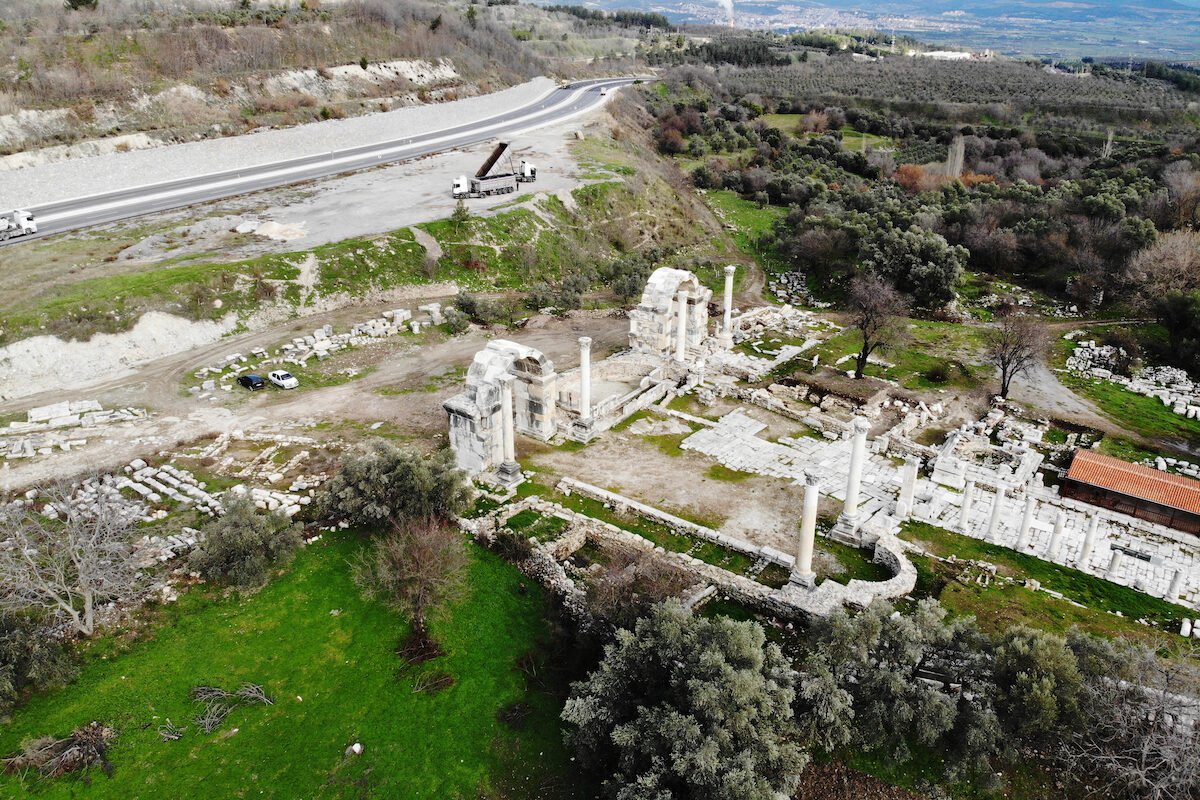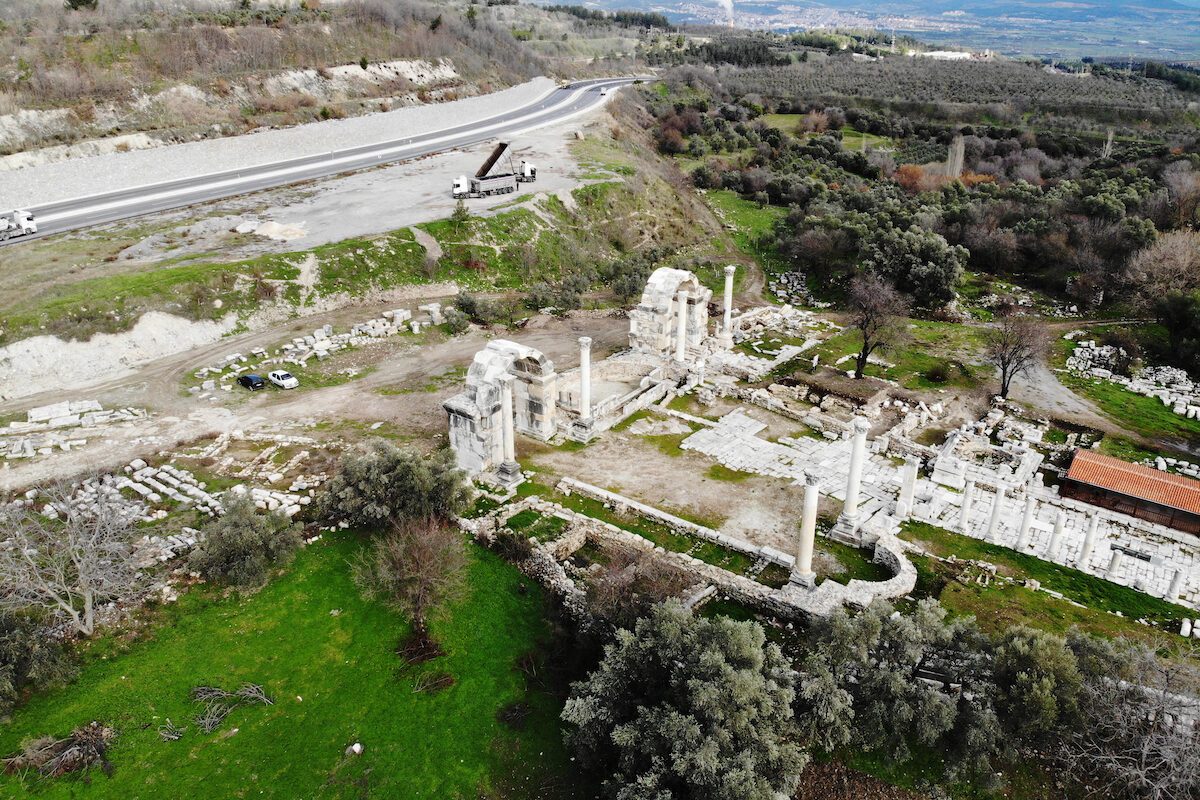

The practice of olive harvesting, which dates back centuries, began in the ancient city of Stratonikeia, located in Turkey’s Mugla province, Anadolu News Agency reports.
The city was included on the tentative list of UNESCO World Heritage sites in 2015.
Also known as the “City of Gladiators,” the historical site was important in the Hellenistic, Roman, Byzantium and Anatolian periods, as well as the Ottoman and Turkish Republic eras.
Locals collect olives, which are called “green gold” in the region, from trees in the ancient city.
Nevcehan Erdogan, who harvests olives in Stratonikeia, said olives are one of the biggest sources of income in the region.
Explaining that they collect the olives by hand without any farm machinery, Erdogan said: “Harvesting olives in the ancient city is a different feeling. Tourists are watching, too.”
Olives have always maintained their importance in the region
Speaking to Anadolu Agency, Bilal Sogut the Head of Excavations in Stratonikeia and Lagina, said, “There are olive trees which are at least 1,000 years old in Stratonikeia and 2,000 years old in Lagina. From the findings and inscriptions unearthed during the excavations, we can say that olive oil has been produced and traded for at least 3,000 years.”
Based on the descriptions of “olives” in some historical artefacts and olive oil extraction materials found in excavations, Sogut noted that the history of olives and olive oil extraction in Stratonikeia and its surroundings dates back to ancient times.
Noting that the olive oil extraction sites were present since the archaic period, he said that olive oil used to be awarded as a prize to winners of competitions in ancient times.
He went on to say that at least four types of olives and olive oils are shown in the price lists from the Roman era, adding that “the olive has always maintained its importance (in the region).”
Erdogan: A new tunnel connects Turkey to Caucasus
Sogut said that on the outer walls of the ancient city’s parliament building, there is a price list of olive oils from the Roman period, which is about 1,720 years ago.
“From our excavations, we know that there were at least five olive oil workshops in a neighbourhood of the Roman era and that they were actively operated at that time,” he added.
Sogut said they also unearthed materials used for olive oil extraction from various periods.
“We continue our efforts to unearth the stones, olive presses and other materials used in the extraction of olive oil,” he added.
Workshops will be set up to show how olive oil was extracted in ancient times in Stratonikeia, he noted.
Related posts:
Views: 0
 RSS Feed
RSS Feed

















 December 31st, 2021
December 31st, 2021  Awake Goy
Awake Goy  Posted in
Posted in  Tags:
Tags: 
















